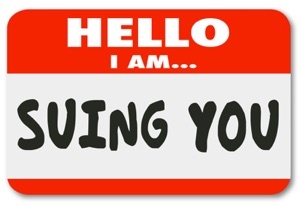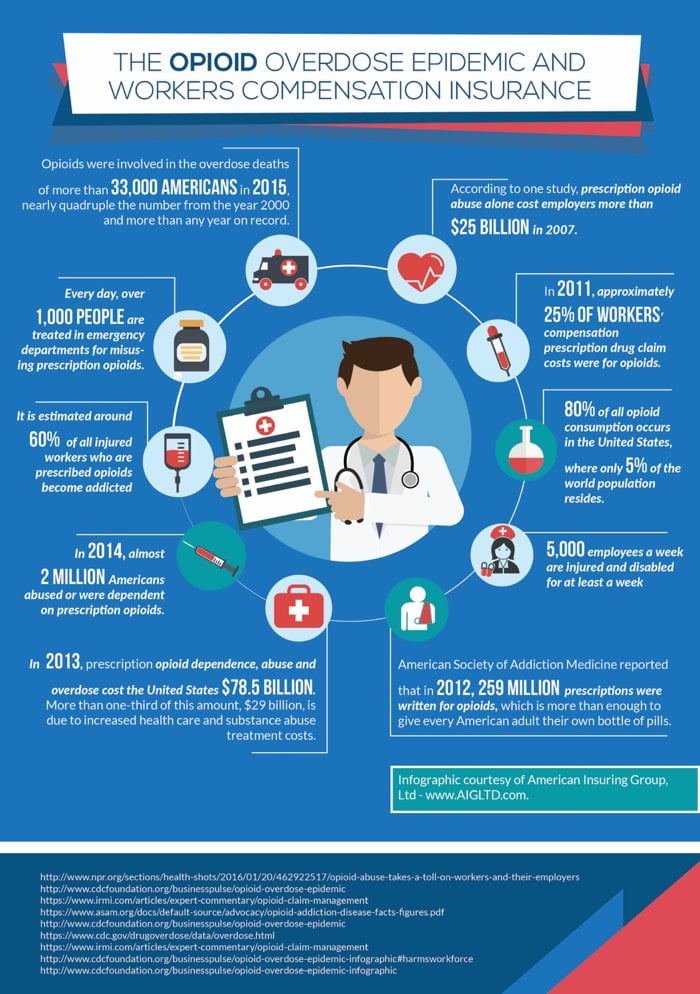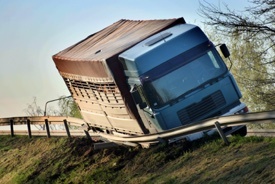 We live in a litigious society, and no matter how careful you are or how small your business is, you may find yourself at the wrong end of a lawsuit. Every year more than 100 million lawsuits are filed in the U.S. every year, according to Rocket Lawyer.
We live in a litigious society, and no matter how careful you are or how small your business is, you may find yourself at the wrong end of a lawsuit. Every year more than 100 million lawsuits are filed in the U.S. every year, according to Rocket Lawyer.
Thirteen percent of small business owners have faced a lawsuit, according to Hiscox. And according to courtstatistics.org, the median cost for a business lawsuit starts at $54,000. “Nearly half of these cases resulted in negative consequences, including financial impact, loss of customers or damaged reputations,” according to Thrive.
Commercial General Liability Insurance
Commercial General Liability Insurance (CGL) is essential if you want to protect your business from lawsuits. CGL covers your business in the event of a liability claim for bodily injury and property damage and from advertising and personal injury liability caused by your services, business operations or employees. It usually covers the cost of your legal defense and any damages if you are found liable (up to your policies limits).
The Insurance Information Institute offers these examples of circumstances that are generally covered by a CGL policy:
- A customer visiting your business trips on a loose floor tile and is injured.
- An employee forgets to turn off the water and causes significant damage to a customer’s property.
- Someone files a class action lawsuit against your business, alleging advertisements constituted misleading information.
Faulty Workmanship and CGL
We are all human. Sometimes things go wrong: an improper installation or a defective product. What if you install a water heater incorrectly, which causes an explosion with significant damage to your customer’s property, and they sue you for the damages? Will your CGL policy cover you?
Generally, the answer is yes. The CGL policy is designed to pay for property damage to a customer's property, even if the contractor installed it improperly. It is not designed to pay the contractor to rip it out and replace it in the proper way. That would be the Workmanship exclusion, but damage from a water heater explosion would typically be covered.
Every policy is unique, but here are two common exclusions in CGL policies that may result in a claim being denied:
- “Your Work” Exclusion – This exclusion is meant to prevent someone from using a CGL policy as a guarantee of their work. It usually excludes coverage on property damage that is caused by faulty or defective workmanship
- “Your Product” Exclusion – This exclusion prevents coverage for damage to an insured’s product in the event of a defect in that product.
These are just two of the exclusions that may be included in your CGL policy. There are many other exclusions that can result in your claim being denied. Understanding these exclusions and knowing your options will help you protect your business. For example, there is optional insurance that can be purchased that may cover you in the event of faulty workmanship - Contractors Faulty Workmanship Coverage or an Errors and Omissions Insurance Policy.
Get Help - Contact the Commercial Insurance Experts!
CGL policies can be complex, so it’s always a good idea to speak with an experienced and knowledgeable independent insurance agent. At American Insuring Group, we pride ourselves on answering questions you may not have thought to ask and making sure you have the right insurance for your business, all at a great price.
Call American Insuring Group at (800) 947-1270 or (610) 775-3848 or contact us online to learn about Commercial General Liability Insurance of all kinds, including Contractos Faulty Workmanship Coverage and Errors and Ommissions Insurance.



 If you’re a CMV (Commercial Motor Vehicle) driver, you’ve probably heard of a little federal agency called the Federal Motor Carrier Safety Administration (FMCSA).
If you’re a CMV (Commercial Motor Vehicle) driver, you’ve probably heard of a little federal agency called the Federal Motor Carrier Safety Administration (FMCSA). Give American Insuring Group a call at
Give American Insuring Group a call at  You’re young and single. You have the world at your feet as you begin your adult life. You’re probably thinking about college or your first job or your first apartment. You’re certainly not thinking about the end of your life! And you don’t have a spouse or children depending on you financially, so why should you think about life insurance?
You’re young and single. You have the world at your feet as you begin your adult life. You’re probably thinking about college or your first job or your first apartment. You’re certainly not thinking about the end of your life! And you don’t have a spouse or children depending on you financially, so why should you think about life insurance? Purchasing a life insurance policy while you’re young is a great way to start on the road to financial responsibility and security now and well into the future.
Purchasing a life insurance policy while you’re young is a great way to start on the road to financial responsibility and security now and well into the future.
 The Center for Disease Control (CDC) reported that every day, over 1,000 people are treated in emergency departments for misusing prescription opioids, and in 2014, almost 2 million Americans abused or were dependent on prescription opioids.
The Center for Disease Control (CDC) reported that every day, over 1,000 people are treated in emergency departments for misusing prescription opioids, and in 2014, almost 2 million Americans abused or were dependent on prescription opioids.  Now, what would happen if your truck was damaged, stolen, or totaled in an accident? Would you have enough money to cover the repairs or replace the truck? What would it mean to your livelihood?
Now, what would happen if your truck was damaged, stolen, or totaled in an accident? Would you have enough money to cover the repairs or replace the truck? What would it mean to your livelihood? Protect your truck and your livelihood with physical damage insurance by giving American Insuring Group a call at
Protect your truck and your livelihood with physical damage insurance by giving American Insuring Group a call at  If you own a restaurant, you’ve probably worked hard to build strong relationships with your staff and create an environment conducive to teamwork. If you’re lucky, you’ve found the magical formula that balances friendliness with professionalism, and you’re proudly watching as your well-oiled team creates and delivers delicious food to your customers. You and your staff may even feel like a big happy family.
If you own a restaurant, you’ve probably worked hard to build strong relationships with your staff and create an environment conducive to teamwork. If you’re lucky, you’ve found the magical formula that balances friendliness with professionalism, and you’re proudly watching as your well-oiled team creates and delivers delicious food to your customers. You and your staff may even feel like a big happy family. Don't take chances with your restaurant business - you've worked too hard to get to where you are today. Be sure you are properly covered for every liability.
Don't take chances with your restaurant business - you've worked too hard to get to where you are today. Be sure you are properly covered for every liability. If you own a food transporatation business, then you need to understand government regulations that can affect your trucking insurance needs and that you
If you own a food transporatation business, then you need to understand government regulations that can affect your trucking insurance needs and that you  FSMA is just one government-imposed regulation that can affect your business, so it’s important that you have the right type of trucking insurance to cover your unique needs.
FSMA is just one government-imposed regulation that can affect your business, so it’s important that you have the right type of trucking insurance to cover your unique needs. This “curse” often affects individuals who work with the
This “curse” often affects individuals who work with the  It has probably been around since the first person sat behind the wheel of a Model T Ford in 1908. But as life seems to have hit break-neck (no pun intended) speed and multi-tasking has become a part of daily living, distracted driving has become the norm rather than the exception. And, of course, the number of deaths caused by teen texting has brought distracted driving to the forefront.
It has probably been around since the first person sat behind the wheel of a Model T Ford in 1908. But as life seems to have hit break-neck (no pun intended) speed and multi-tasking has become a part of daily living, distracted driving has become the norm rather than the exception. And, of course, the number of deaths caused by teen texting has brought distracted driving to the forefront. No one wants to pay more for business or
No one wants to pay more for business or  American Insuring Group can help you determine if you flood insurance is right for your home or business.
American Insuring Group can help you determine if you flood insurance is right for your home or business.



